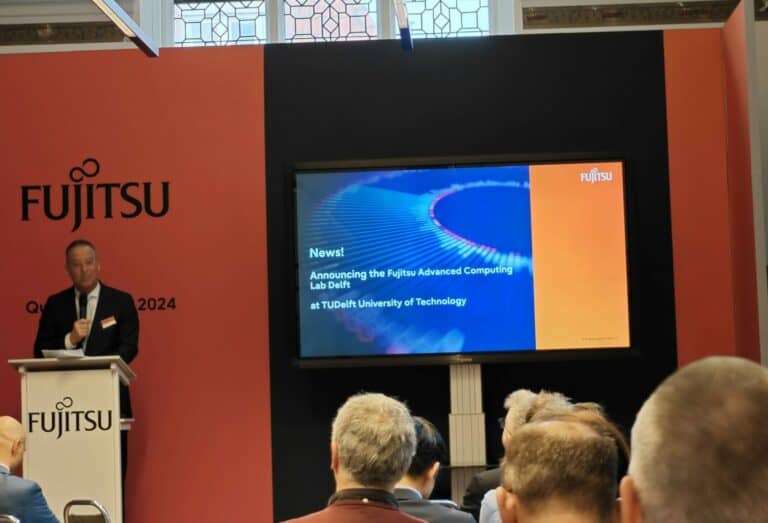Delft University of Technology is now home to the Advanced Computing Lab, an initiative to advance the development of advanced quantum computing technologies.
In the Advanced Computing Lab, scientists from around the world will collaborate with Fujitsu researchers. At TU Delft, work on new technologies, including quantum computers, has been going on for years. Potential applications of computers in various sectors are currently being researched. “TU Delft is the ideal place for industry and science to collaborate on advancing this key technology,” Rector Magnificus and Chairman of the Executive Board Tim van der Hagen said about the new lab.
For Fujitsu, getting involved in the lab at TU Delft is interesting because of the presence of the quantum technology research institute QuTech. This institute is a collaboration between TU Delft and the Netherlands Organization for Applied Scientific Research. The involvement of this organization will ensure that the knowledge gained in the quantum lab will also be applicable to companies and governments.
Purpose of the lab
The first goal of the lab is to accelerate research in diamond-spin quantum computing. QuTech researchers have previously developed this technology using a logical qubit on a 29-qubit quantum processor. The spin qubits can operate at relatively high temperatures. Using this technique, the researchers aim to ultimately create a blueprint for modular quantum computers that can scale to more than 1,000 qubits. This would theoretically allow a quantum computer to perform highly complex computation tasks quickly.
In addition to this specific goal, the parties involved also aim to advance the development of quantum applications for the real world. Indeed, quantum computing is a promising technology that can contribute to societal issues, such as finding new medications and solutions to climate change. However, this potential has yet to be fully exploited.
The Advanced Computing Lab will exist alongside TU Delft’s high-performance computing (HPC) environment DelftBlue. Van der Hagen indicates that the researchers may use the HPC environment in combination with quantum computing.
Tip: Quantum Application Lab lowers entry barrier to quantum computing
